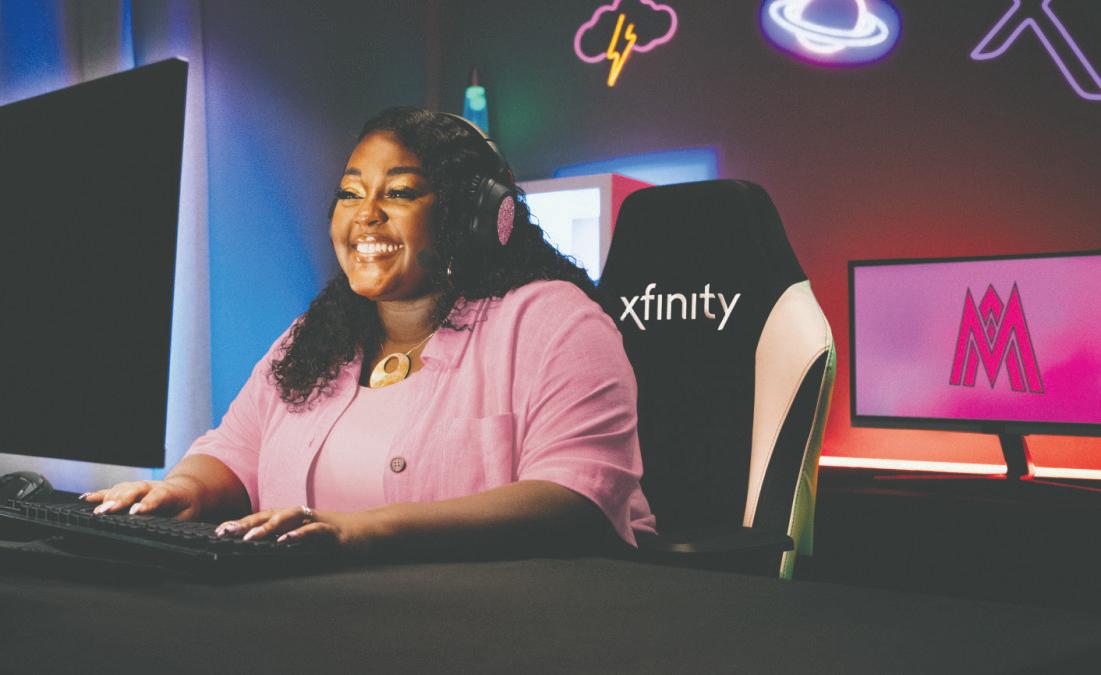











Coach Prime leaves Jackson State University

College football coach and Pro Football Hall of Fame member Deion Sanders caused a frenzy on Black Twitter regarding his recent decision about his new coaching job.

Sanders decided to leave the HBCU Jackson State University (JSU) to take a position with the University of Colorado Buffaloes. Many are concerned about why “Coach Prime” would leave the Black college team he built into a powerhouse in just three seasons for a… lack of better word… doormat program at a predominantly white institution.
It’s worth recognizing for three seasons, he accomplished a lot at JSU. Sanders was tasked with resurrecting the program in 2020 during the COVID-19 pandemic. So far, Sanders went 27-5 at Jackson State, including 12-0 this season leading up to the Celebration Bowl on Dec. 17. He sold out stadiums not only in Jackson, MS but everywhere his team played, and upgraded the school’s facilities. He gave JSU the relevance and the spotlight they sorely lacked but greatly deserved.
We can’t forget that Sanders did say that he would eventually leave for a bigger stage. But out of all “Power Five” conference schools in need of a proven leader, why an underperforming school like Colorado? No disrespect Buffaloes. What message does this send to young Black talent who are looking to play at HBCUs? One person on Twitter said “Not mad at Deion, but being a big name at an HBCU and him recognizing the systemic struggles that HBCUs face and then he leaves, does NOTHING to help solve the problem. True HEROES at HBCUs find ways around salary concerns because their mission is BIGGER than money.” Honestly, Sanders was nobody’s savior. He did what he had to do and le . ere are underlying issues HBCUs still have to face, and it will take more than one notable Black figure to solve.
In case you missed Saturday Night Live on Dec. 3, actress Keke Palmer announced she was pregnant during her monologue. “ ere’s some rumors going around,” she said. “People have been in my comments saying, ‘Keke’s having a baby, Keke’s pregnant.’ And I want to set the record straight—I am!” en she opened her oversized coat to reveal her pregnant belly. Her news le mixed reviews.
Many were excited to see this actress who we all (yes, me too) watched grow up on screen since her breakthrough role in “Akeelah and the Bee” to now launching her own television network Key TV, accomplishing all her goals, and now reaching a new milestone as a soonto-be mother. Others, weren’t so happy because of their theories on the breakdown of the institution of marriage in the Black community and the praising of single motherhood.
In 2020, she announced on social media that she had PCOS, or Polycystic Ovary Syndrome, a hormonal disorder that can cause irregular and painful periods, acne, fluctuating weight, and excessive hair growth. Palmer said that for her entire life PCOS was attacking her from the inside out. Another common challenge women with PCOS face is difficulty getting pregnant. I can only imagine how happy she must feel being able to make this announcement with all that she’s been through. Palmer has been very low-key with her relationship with Fitness Instructor Darius Jackson and unless she told us the ins and outs of their family planning, womb gatekeepers need to relax!
HPD has arrested a man suspected of killing Migos rapper Takeoff. Patrick Xavier Clark (33), who was arrested and charged with murder in the fatal shooting, was originally said to be a bystander to gunfire outside of a bowling alley in Houston on Nov. 1. He is being held on on a $2 million bond which was set during his first court appearance, according to authorities. If he is able to post bond, he’ll be under 24-hour house arrest. Prosecutors believe Clark is a flight risk because he bought flight tickets to Mexico just two days before his arrest and applied for an expedited passport. Investigators were able to identify Clark through various cellphone and surveillance footage along with shooting reconstruction and ballistic evidence. is is just a small step closer to justice and though this won’t bring Takeoff back, I do hope that justice will bring some peace to his family and friends.
• Domestic violence homicides in Harris County dramatically rose in 2022.
• Texas Board of Education fails on Black Studies.
• Meet Traci Green of the Houston’s Urban Nutcracker.

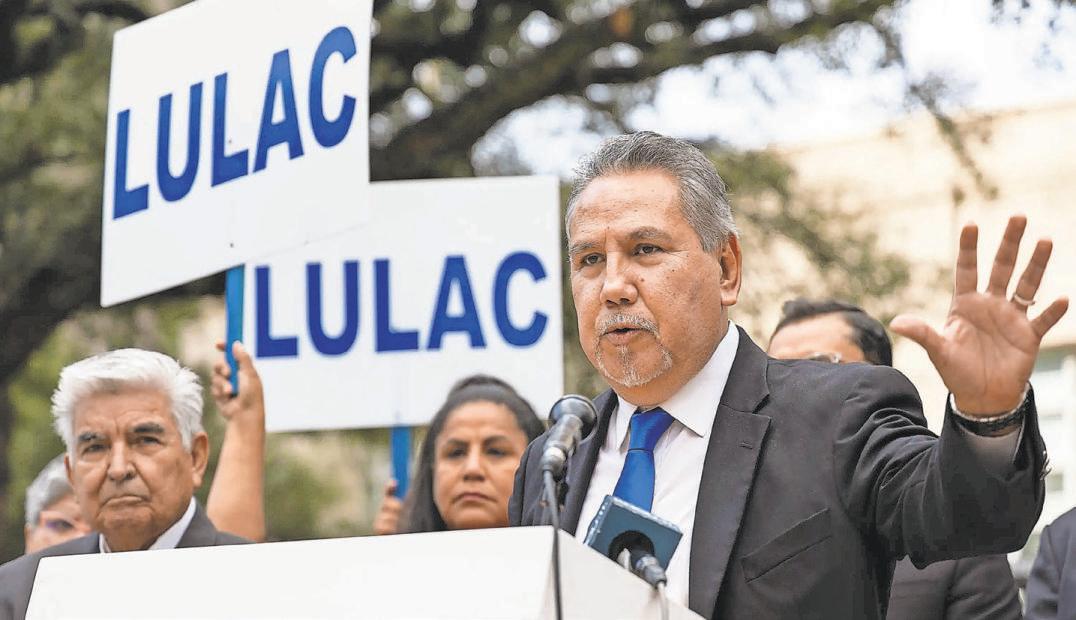
Citing the underrepresentation of Lati nos on Houston’s City Council, one of the nation’s oldest Latino civil rights organiza tions is suing in hopes of undoing the system the nation’s fourth-largest city uses to elect its governing body.
In a federal lawsuit, the League of United Latin American Citizens (LULAC) and four individual Latino residents allege the city undercuts the voting strength of Latino vot ers by continuing to elect fve of its 16 council members through at-large elections, in which all city voters are able to vote. Eleven council members are elected from individual districts.
Te suit asks a federal judge to block use of the partial at-large system in future elec tions, arguing the system violates the fed eral Voting Rights Act’s protections against discrimination.
Te largest city in Texas, Houston has an election system that stands alone among the state’s major cities, which have all aban doned at-large voting. Other large U.S. cities,
including New York City and Los Angeles, long ago abandoned at-large districts.
Just two Latino candidates have ever been elected in Houston’s at-large districts in the city’s history, according to the complaint.
“Te Latino voters of Houston have waited for fair redistricting plans,” the complaint reads. “Tey have waited for years for the City of Houston to end its long relationship with ‘at-large’ districts that dilute the electoral strength of Hispanics. Te time has come to replace this old election system that functions solely to dilute the power of Houston’s Latino voters.”
Te fght to rid the state of at-large districts goes back decades, when civil rights attorneys and Texans of color successfully challenged election systems across the state under the Voting Rights Act in hopes of giving voters of color more say in who represents them. Tey diversifed city councils and school boards that were once entirely white by forcing them to move from at-large voting systems to a single-member approach, in which the
city or school district is split up and voters elect representatives for their respective geo graphic areas.
Te federal lawsuit follows the City Coun cil’s October vote to approve new boundaries
for its 11 single-member districts to incorpo rate population growth captured in the 2020 census. In a city of 2.3 million, Latinos make up about 44% of the population and easily account for the largest demographic group.
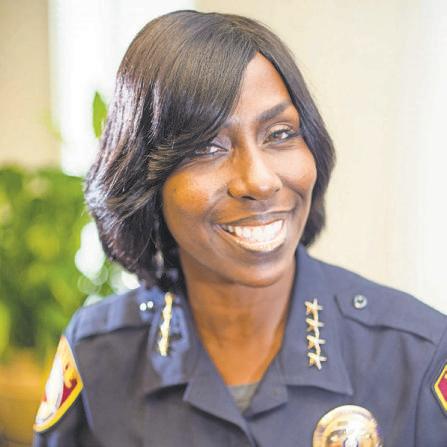

Texas Southern University’s police chief will head to court on Dec. 13 in a hearing that could determine whether she keeps her job. Te longtime law enforcement ofcer is fghting to clear her name afer the school’s Board of Regents received an anonymous complaint accusing her of fraud.
Chief Mary Young said the complaint came after she admonished some of her ofcers to be professional and avoid “appearing to be mere chauf feurs, errand-runners, and personal assistants for the president.”
“Tey’re not there to take her to the beauty shop or gro cery store,” the police chief told a local TV station.
Shortly afer admon ishing officers, Young said an anonymous fraud complaint was fled against her alleging she had approved overtime hours that ofcers didn’t work.
of mandatory Texas law against Petitioner,” the lawsuit reads.
Mary Young’s attor ney Ben Hall contends TSU broke state law by not providing Young with a signed complaint.
continue to handle this personnel matter and allegations of fraud within the appro priate private and legal forums and out of the media.”
since mid-2017, contends that Crump ton-Young met with her sometime afer she admonished her ofcers over their profes sionalism, and she informed Young that the regents wanted to fre her.
Te chief later learned that a purported audit was underway to investigate certain allegations brought forward in the anony mous complaint, she alleges in the lawsuit. Afer repeatedly asking for a copy, her attor ney says he received a “heavily redacted” unsigned version.
Mary Young“The fact that TSU President [Lesia Crumpton-Young] expressly told Peti tioner that she was being considered for disciplinary action (removal) afer the anon ymous, unsigned complaint is clear evidence Respondent has and is acting in violation
He also said they never gave her an opportunity to respond to the anonymous complaint. Te university issued a statement saying, “Texas Southern University is committed to maintaining fair employment practices and actively ensuring a safe and productive envi ronment for all employees for the beneft of our number one customer…TSU students.
For the sake of the entire TSU community and valued stakeholders, the university will
State District Judge Brittanye Morris granted Young a temporary restraining order, requiring TSU to stop threatening or attempting to remove her from her position or issue other disciplinary action related to the complaint until the hearing.
Young said she’s confdent the truth will come out in court.
“I hate that it had to get to the point that I had to fle a lawsuit to make sure the truth gets told, but I am not a criminal,” she said. “My character and integrity is everything, and that’s what I’m going to continue to promote.”
Young, who has been TSU police chief
Te anonymous complaint alleges that in January, Young told her staf that she was raising pay for certain ofcers who would become “lead ofcers.” Te complaint said she approved feld training pay and overtime for those people. A supervisor signed of on the timesheet, believing Young had author ity. Young said she knows that she doesn’t have the authority to grant pay raises, and she doesn’t believe the board received the full story.
Tough Young believes the investigation is retaliatory, the chief’s case could hinge on whether TSU followed state processes for complaints and investigations. Te Texas Government Code says only signed com plaints may be accepted to initiate inves tigations of complaints against licensed peace ofcers, and they must be provided to a peace ofcer in a reasonable timeframe, Young’s attorney said in the lawsuit.


A jury of eight men and six women has been selected for the trial of former Fort Worth officer Aaron Dean, who is charged with murder in the 2019 shooting death of Atatiana Jefferson.
No Black jurors were selected for the case, which in 2019 sparked protests from the Black community over the killing of Jefferson, a Black woman. A majority of the selected are white; several jurors are people of color, though none are Black.
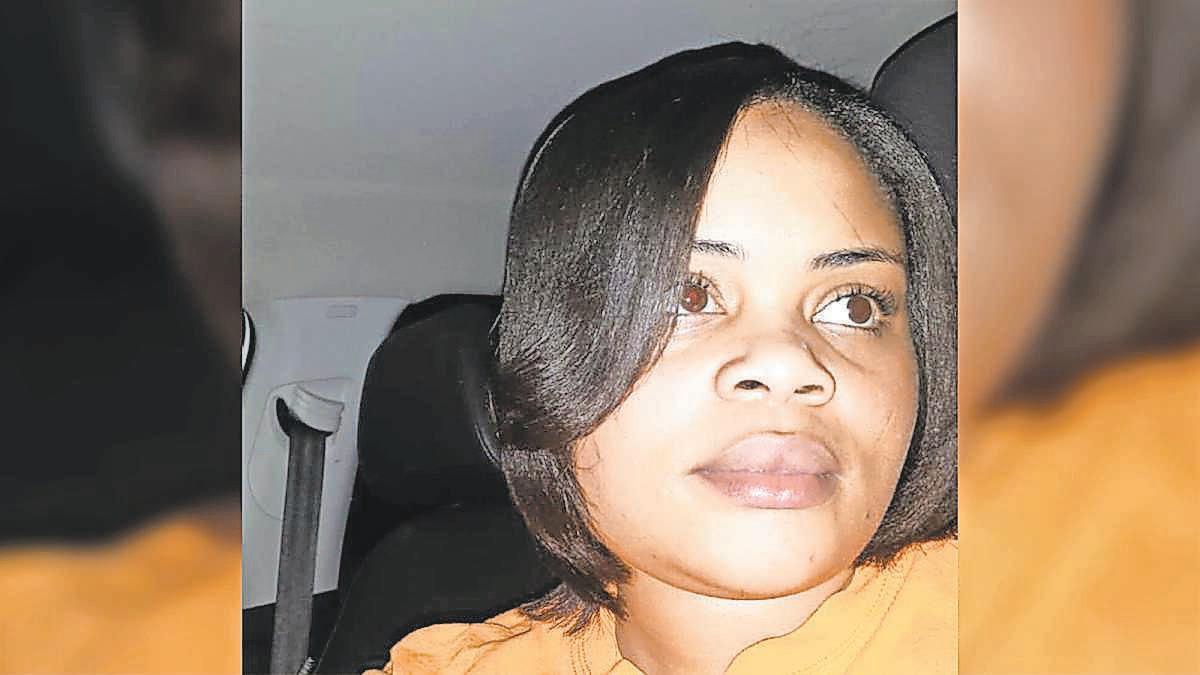
Opening statements began Dec. 5. e 200 potential jurors were randomly numbered. After dozens of potential jurors were excused either because they had conflicts at home or work or because they told the court they were biased or the judge deemed them to be biased based on their answers, the potential jury pool was “shuffled,” meaning they were given new random numbers.
Sources with knowledge of the jury selection process said the jury was ultimately picked from the first 46 potential jurors. Among that group, there was a Black female who was excused from jury service because her spouse was having surgery.
The judge gave both sides the opportunity to challenge the jury members that were picked, and neither side had any objections.
Aaron Dean is accused of shooting

Atatiana Jefferson in October 2019 in her home. Jefferson’s neighbor, James Smith, called a non-emergency number to check on Jefferson’s home a er he saw an open door.
Dean and his partner responded and went around the back of the home. Dean shot Jefferson within seconds a er she peered out the window to see who was in her backyard and was holding a gun. Police have said Dean never announced himself as an officer.
During jury selection this week, prosecutors allowed prospective jurors to ask questions and talk about how they felt about law enforcement.
Several jurors stood up and said they could not be impartial and were biased toward Dean because he is a police officer.
“I am sick and tired about the way police officers are treated and how they do their jobs,” one juror said. “You could present your case but I am not going to be unbiased. I couldn’t convict any law enforcement of murder while

involved in a shooting because they are doing their jobs and trying to come home to their families.”
One potential juror served 32 years as an officer in Tarrant County and said, “You will have an uphill battle convincing me that in 10 seconds you can get into his mind and see what he saw and heard.”


Cory Session, a Fort Worth community leader, said that he was concerned about the makeup of the jury.
“It’s just mind-boggling that this would happen at this date and time given the circumstances,” Session said. “If he’s found not guilty of the charges, race will be brought up and it could be a bad day for the city of Fort Worth and race relations. But the people who are the custodians of the judicial process are the ones who should answer for how this jury pool ended up this way.”
Valerie Baston, a former Tarrant County prosecutor, said she was not shocked at all by the composition of the jury.
“It is a typical Tarrant County jury,” Baston said. “I was a prosecutor in Tarrant County for many years… and the jury pools would be predominantly white.”
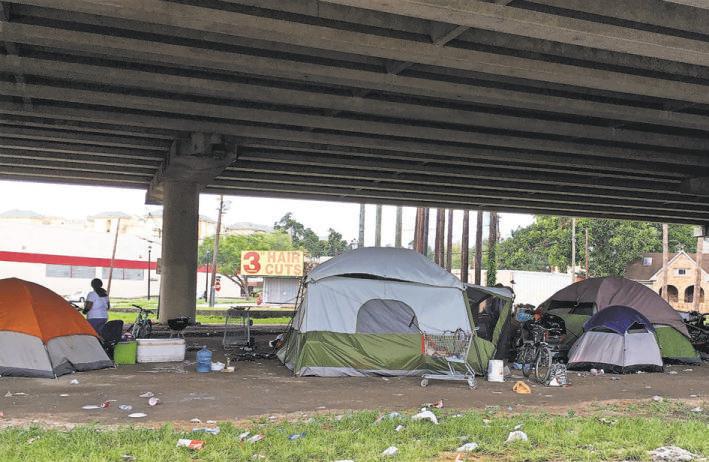 By ReShonda Tate
By ReShonda Tate
The Coalition for the Homeless has been awarded a $5 million grant to curb homelessness for families here in Houston. Launched in 2018 by Amazon founder Jeff Bezos, the Bezos Day 1 Families Fund grants money to organizations that support the immediate needs of young families.
Mike Nichols, the president and CEO of the Coalition, said the money will go a long way toward supporting struggling families in Houston.
“It will give us a chance to be very creative, and problem- and solution-oriented in finding ways to house formerly homeless families,” Nichols said.
Nichols said they’ll be giving most of the $5 million to local direct service providers that keep families
housed over a long period of time.
e Coalition has housed more than 25,000 people since 2012, according to the Coalition’s website — an effort that’s led to national recognition.
In January, the organization counted 3,223 unhoused people in Harris, Fort Bend and Montgomery counties during its annual point-in-time count.
e Coalition found a 19% decrease in overall homelessness in the region since 2020, and a 64% decrease since 2011, according to the Coalition’s 2021 PIT Count & Survey.
e organization is one of 40 grant recipients this year, with $123.45 million given to fight homelessness across the U.S. In total, the fund has given $521.6 million over the years.
pass for Interstate 59 in Houston.
It’s just mindboggling that this would happen at this date and time given the circumstances.”
CORY SESSION, FT. WORTH COMMUNITY LEADERAaron Dean














Merrill believes the future is bullish, even in the most unpredictable of markets, because we’ve been here before. And when you get matched with one of our advisors, you get years of financial planning experience and a goal-oriented plan — all designed to help you through the uncertainty.









Match with an advisor and get your complimentary consultation at ML.com/Bullish














I think it
appalling when I found out that in Houston, every other woman that dies from breast cancer is Black, with the Medical Center down the street.”
FELICIA PICHON, breast cancer survivor and founder of Sisters Thrive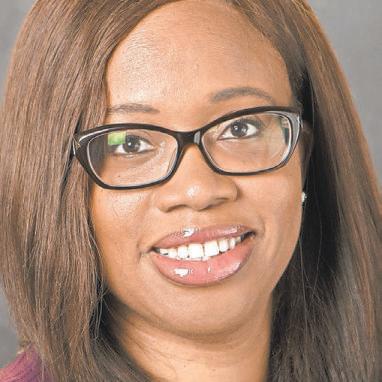


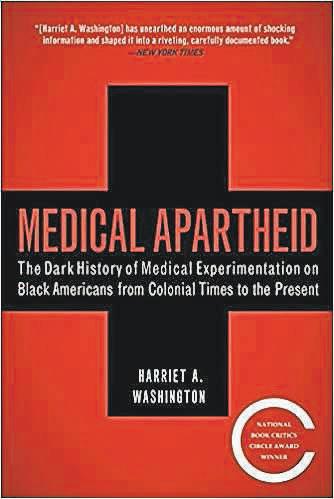 By Aswad Walker
By Aswad Walker
In the U.S., there are two trains of thought regarding access to healthcare. One camp believes it is a right given to all people at birth regardless of any particular status. e other views healthcare access as a privilege to be earned via U.S. citizenship, insurability, residency, etc.
These two opposing views have created a reality where there exists a huge gap in access, especially for members of the Black and Latino communities. But how does this access or lack thereof play out for Black and Latino members in the Greater Houston area?



When asked to grade that access for the Houston area’s people of color, Dr. Lorna McNeill, chair of the Department of Health Disparities Research in MD Anderson’s division of cancer prevention, pulled no punches.
“Probably a D,” said McNeill. “On one level, much of access to healthcare obviously is governed by whether you have insurance, and the state of Texas has the highest uninsured rate in the country and the highest number of individuals without insurance. So, without Medicaid access and expansion of the Affordable Care Act, Texas leads the nation in uninsured rates. So that would probably be an F.” According to the Commonwealth Fund, a health policy foundation in New York, the Lone Star State is in the bottom quarter of states regarding both access to and quality of care for Blacks and Latinos. ese populations, when compared to their white counterparts, are also more likely to suffer worse healthcare outcomes.
For state health systems’ treatment of Blacks and Latinos, Texas ranked in the 22nd percentile (the bottom fourth), while ranking in the top 40%, or 63rd percentile, for treatment delivered to whites.
Cancer “survivor/thriver” Felicia Pichon, founder of Sisters rive, a nonprofit that supports Black women in various stages of their breast cancer journey, agrees with McNeill’s assessment of healthcare access in the Houston area.
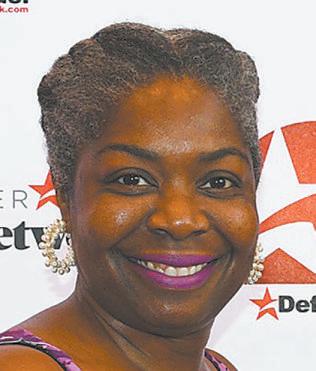
“I think it is appalling when I found out that in Houston, every other woman that dies from breast cancer is Black, with the Medical Center down the street,” said Pichon.

“During Breast Cancer Awareness Month I attended every event I could, saying, ‘Let me get out here and see what they got going on in the community.’ And I would see (hospitals) at every event with the same slideshow, just a different representative each time. And it’s like, ‘Y’all doing all this but where are y’all at the rest of the year? Where? Because I can’t get in contact. What are you doing to make a difference?’”
When accessing the current state of healthcare access, Dr. Munish Chawla, retired radiologist and current co-head of the nonprofit Peaceful Planet, names vastly different qualities of care as a reason for the divide.
“Receiving care for COVID, for example, at LBJ hospital is vastly different from receiving care at Methodist Hospital in the Medical Center, in terms of equipment, nursing, testing and treatment option resources,” said Chawla.
Chawla added poorer underlying health, “higher rates of obesity, diabetes, heart disease, etc., play a role in worse outcomes in communities of color.”
McNeill added that because healthy people equate to a healthier economy, fixing this access issue demands that solutions don’t get ignored or rejected based on partisan politics.

So, what are the challenges that lead to this disparate care? ere are several.
It’s said everything’s bigger in Texas. Unfortunately, that includes the rate of uninsured where roughly one in five Texans lack insurance. About 20% of Blacks
and 38% of Latinos are uninsured. For whites, that number stands at 15%.
“ is [the Texas Medical Center] is the largest medical center in the world… [but access] is still dominated by whether or not you have insurance, unfortunately,” said McNeill.

Another challenge is the cost of healthcare, an issue directly related to insurance. e location of care is also a barrier to equity.
“Transportation is a roadblock for many as there are no hospitals in the ird Ward, and relatively few clinics, though that’s changing a bit with the recent opening of Legacy Health and CenterWell [senior care only],” said Chawla.
McNeill counts partisan politics as a huge challenge to equal healthcare access.
Only 12 states chose not to expand Medicaid eligibility to nonelderly people with incomes up to 138% of the federal poverty level.
Texas is one of them. All these states have Republican governors and/or GOP-dominated state legislatures.
According to a July 2022 Robert Wood Johnson Foundation report, 11 of the 13 states with the highest uninsurance rates nationwide have not expanded Medicaid. Moreover, if the 12 non-expansion states were to fully implement Medicaid expansion in 2023, 3.7 million more people would be insured. Blacks would be one of the demographics to benefit most from such a move.
“ ese decisions to not expand, from my perspective, are more political, not focused on the health of the citizenry,” said McNeill. “Because to the extent that we’re concerned about people dying earlier than they need to be, people not having access to healthcare, this was the solution nationally to solve that problem. All of us are open to hearing what the other recommendations and suggestions are. If it’s not the Affordable Care Act, then what is it?”
Another challenge is one members of the Black community must own—our distrust of the healthcare system.
“Go to the doctor, get a checkup,” said Dr. Alauna Curry, a Houston-area psychologist, when asked about what health practice Blacks need to engage in more. “We’re hesitant to do that, and understandably so, because we have been abused by so many elements of the system that we o en don’t know who to trust.

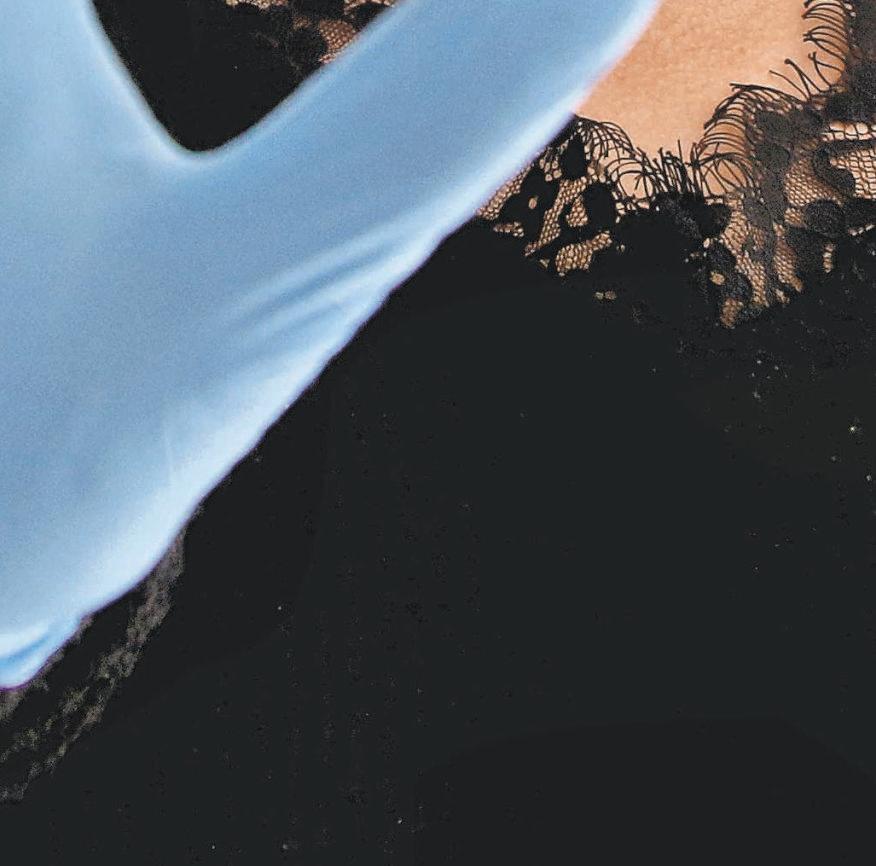


“We don’t trust the people. We don’t trust that we’ll get the answers we need. And sometimes we will have bad experiences but that cannot let you neglect your health. And that’s o en what we use as excuses to not take advantage of the advances in medical science, like the COVID vaccine, a huge advance in medical science.”

Solutions from those interviewed to bridge the healthcare gap include using the insurance we have, expanding insurance access beyond employment, producing more healthcare workers of color, increasing hospitals and clinics in Black and Brown communities and what McNeill sees as the first step, pushing Texas to accept ACA funding.
is
 Houston Public Media
Houston Public Media

In the fall of 2018, Megan Pete consistently sat in the front row of Melanie Wilson-Lawson’s healthcare administration class at Texas Southern University, listening intently to the professor, asking questions and completing her assignments. Wilson-Lawson said she didn’t realize until well into the semester that her standout student had an alter ego away from the Houston campus and was on the verge of becoming a world-famous superstar in the entertainment business.
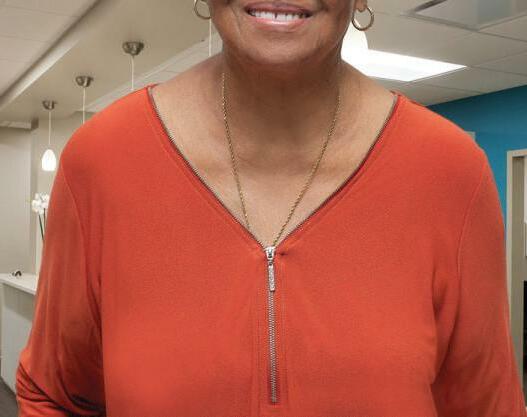

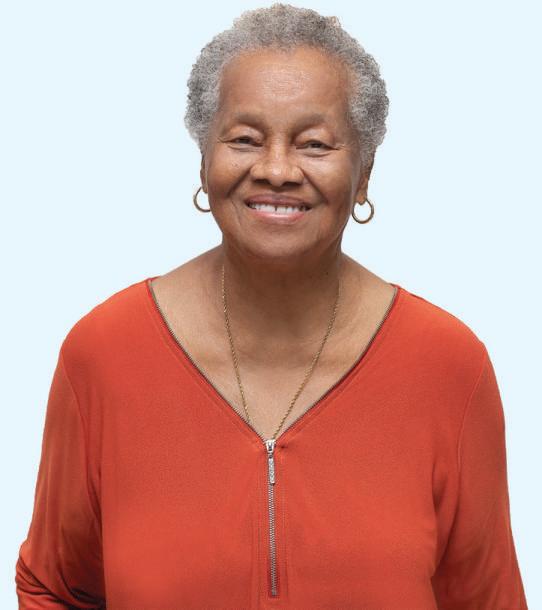
Four years later, that engaged, unassuming student is better known as rapper Megan ee Stallion, who this week became the first Black woman to grace the cover of Forbes magazine’s 30 Under 30 edition recognizing North America’s top entrepreneurs who have yet to reach age 30.
“She came to class professional. She came to class engaged. She was a student,” Wilson-Lawson said. “You would have never known she had a whole hottie world going on outside that classroom.”
e drive and dedication that Megan Thee Stallion displayed as a student at Texas Southern University – where she earned a degree a er becoming a hip-hop star – explains why she has become so successful, according to Wilson-Lawson and Jabari Young, the Forbes reporter who wrote the cover story. And so does the vision possessed by Megan ee Stallion, who predicted her stardom in conversations with her favorite college professor, according to Wilson-Lawson.
As Young reported in his cover story, the 27-year-old Megan Thee Stallion earned an estimated $13 million this year in concert ticket sales, merchandise, endorsements and royalties. She recently signed endorsement deals with brands such as Cash App, Nike, Popeyes and Revlon.
While hosting and performing on Saturday Night Live in October, Megan ee Stallion told Young, “I can’t slow down right now... I’m trying to really build something.”
“Everything she showed in that classroom showed up while I was researching her, and it’s showing up now,” Young said. “She wants to do the work.”

Megan ee Stallion made Forbes’ 30 Under 30 list three years ago as a 24-yearold. While she was not technically in the
2023 list unveiled this week, she was selected to be featured on the cover as part of the 30 Under 30 project, according to Young. He said such an honor is reserved for successful businesspeople who display authenticity, unwavering commitment and an entrepreneurial spirit.
Megan ee Stallion, who graduated from Pearland High School, achieved stardom while coping with the 2019 deaths of her mother and grandmother. She ceremonially received a key to the City of Houston on May 2 of this year – the birthday of her mother and grandmother.
In February, on Megan ee Stallion’s birthday, she launched the Pete and omas Foundation – named a er her late parents, Joseph Pete Jr. and Holly omas – to help women, children and seniors in underserved parts of Houston, with a focus on education, health, housing and wellness. And in September, in conjunction with the release of an album called “Traumazine,” Megan ee Stallion launched a website that includes a therapist locator as well as a collection of links and phone numbers for mental health organizations and hotlines. The site focuses on resources for the Black and LGBTQIA+ communities.
Wilson-Lawson, who has kept in touch with Megan ee Stallion, said she has remained true to her values and is much the same person today as she was in 2018. She continues to hone her craft as an entertainer as well, with Young saying the rapper keeps a running file on her iPhone that contains potential song lyrics.
Missouri City State Rep. Ron Reynolds, who was recently elected chair of the Texas Legislative Black Caucus (TxLBC), has his priorities in order.
Te TxLBC was formed in 1973 and con sisted of eight members. It is currently com posed of 17 members of the Texas House of Representatives and two from the Texas Senate. Te TxLBC is committed to address ing issues African Americans face across the state of Texas. Te 2020 US Census data shows that Texas has the largest number of African Americans in the country.
“I am honored to be elected by my col leagues to serve as the next chair of the TxLBC. I look forward to leading our cau cus in fghting for the important policies to empower and improve the lives of African Americans,” Reynolds said.
Reynolds is currently serving his sixth term in the Texas House representing District 27 which encompasses areas of Fort Bend County. He serves as the ranking member of the Environmen tal Regulation Committee, the powerful Energy Resources Committee and the vice-chair of the Texas Caucus on Climate, Environment and the Energy Industry.

Te Defender spoke with Reynolds and asked him the question, “What are your top priorities for the TxLBC?” Here’s what he said.
Reynolds: Tere are many priorities, but we need to focus on the most pressing issues, [and one is] healthcare. First of all, Texas has the largest number of African Americans in the country per the 2020 census. We lead the nation in the highest number of uninsured. Most of those are Black and Brown people. Texas leads in Black women maternal mor tality. We lead the nation.
We’re one of 12 states that don’t have Medicaid expansion. Many of the health outcomes that we experience are from peo ple who lack access to care that would help determine whether or not they get preven tative medi
cal treatment, before things exacerbate. So, one of the top issues is going to be advocat ing for passage of Medicaid expansion this session. Tat is a priority and that is really essential for the quality of life.

Reynolds: We are prioritizing econom ics; making sure that the state does a bet ter job of fulflling their MWBE (Minority and Women-Owned Business Enterprise) Hub goals. Te state of Texas has a HUB program; historically underutilized busi nesses. Yet and still most of those contracts are awarded to Anglo women who ft that definition, Hispanics and other minori ties. African Americans typically fall at the bottom.
Te state of Texas spends more money than many countries. And we need to make sure that we continue to advocate for a level playing feld for contract opportunities with the state. Te state spends billions and bil lions of dollars every year with your tax dol lars, our tax dollars. We need to make sure that there’s equity in those disbursements for African American businesses that are competent, capable and qualifed. So, the second [priority] is going to be economic empowerment.
Tat includes holding our state agencies accountable to contracting with and ful flling their MWBE goals, their hub goals. Because when Black businesses succeed, our communities thrive. Small businesses, as you may know, are the economic engines that drive our economy. So, when our small businesses sufer, our communities sufer. We need to make sure that we strengthen opportunities for Black businesses in this state, again, having the most African Amer icans. But we typically are at the bottom when it comes to contracting opportunities. So that is gonna be a big, big priority for us.
REYNOLDS: Another priority that we have is criminal justice reform. We did see a little progress last session on a few of the George Floyd bills, [but] not all of them. Not most of them. Just a few. So, there are many disparities that continue to exist within our criminal justice system, where Blacks are targeted and victimized at alarming rates, for longer sentences for the same ofenses, being indicted, being prosecuted more, more instances of police brutality, more instances of racial profling. And those have to stop.
This is 2022. It is unfortunate that we still don’t live in a post-racial America. So, many disparities continue to exist as of today within our criminal justice system. So, crim inal justice reform will be one of our top fve priorities. We still need to make sure that we can hold police account able. Tat is something that we have not been able to do. We need to do that.
REYNOLDS TALKS ABOUT ADDITIONAL TXLBC GOALS
The state spends billions and billions of dollars every year with your tax dollars, our tax dollars. We need to make sure that there’s equity in those disbursements for African American businesses.”
REP. RON REYNOLDS
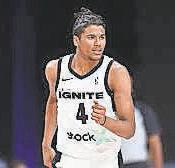
Rockets guard Jalen Green and Adidas unveiled an upgraded basketball court at Brewster Park in partnership with Houston Mayor Sylvester Turner and the Houston Parks and Recreation Department. A er the unveiling, Green and the Rockets hosted a basketball clinic for children from the Urban Enrichment Institute. Each participant received a gi pack courtesy of Green and the Rockets and the group has been invited to attend an upcoming Rockets home game. The court, which is located in Houston’s historic Fi h Ward, features artwork reflecting Houston’s culture and components symbolic to Green.
Rockets second-year guard Jalen Green scored 30 points to help li Houston to a surprising win over the Phoenix Suns.

e day we all knew was coming actually came this past weekend.
Celebrated Pro Football Hall of Famer Deion “Prime Time” Sanders le Jackson State to take over at Power 5 conference school University of Colorado. It was a move that was expected to happen at some point.
Coach Prime was never in Jackson, Miss. to stay.
So what does Jackson State, SWAC and HBCU football do now? For the past three seasons, Sanders and his giant personality showed us not just what long-struggling Jackson State football could be but what HBCU football could be in general.
ere hasn’t been a bigger more well-known football personality strolling the HBCU sidelines since the late-great Eddie Robinson did so at Grambling State. ere is an argument to be made that nobody, not even Robinson, has done it bigger.

recruits are starting to leave with former 5-star cornerback Travis Hunter announcing he has entered the transfer portal with intentions of following Coach Prime to Boulder, Colo.
But all isn’t lost. In the short time Sanders was there shining a light on Black College Football, he was also dropping important nuggets of knowledge about survival and how HBCU schools and conferences need to start thinking and moving to remain relevant.
Sanders challenged alumni, boosters and universities to invest in their athletic programs and facilities. He cautioned them against pimping out their football programs to Power 5 schools and “Classic” promoters for less money than they are worth.
Sanders owes JSU $300,000 in buyout money for leaving with two seasons remaining on his contract.
the ultimate sellout to children.
“I know I’m not going to win, I’m going to lose three or four players to injury and you’re going to humiliate my team and I’m going to have to build them back up the next week to play again. at doesn’t make any sense to me.”
And this season, the Jackson State Tigers didn’t have one Power 5 school or FBS game, also known as money games, on their schedule. at is unheard of for HBCU football programs because that’s not a way of padding their coffers but a way of survival for those athletic departments.
It’s a safe bet that Texas Southern coach Clarence McKinley and Prairie View A&M coach Bubba McDowell would love to walk into their respective boss’s offices and tell them to remove all Power 5 and FBS opponents from their schedules going forward. ey would get laughed at.
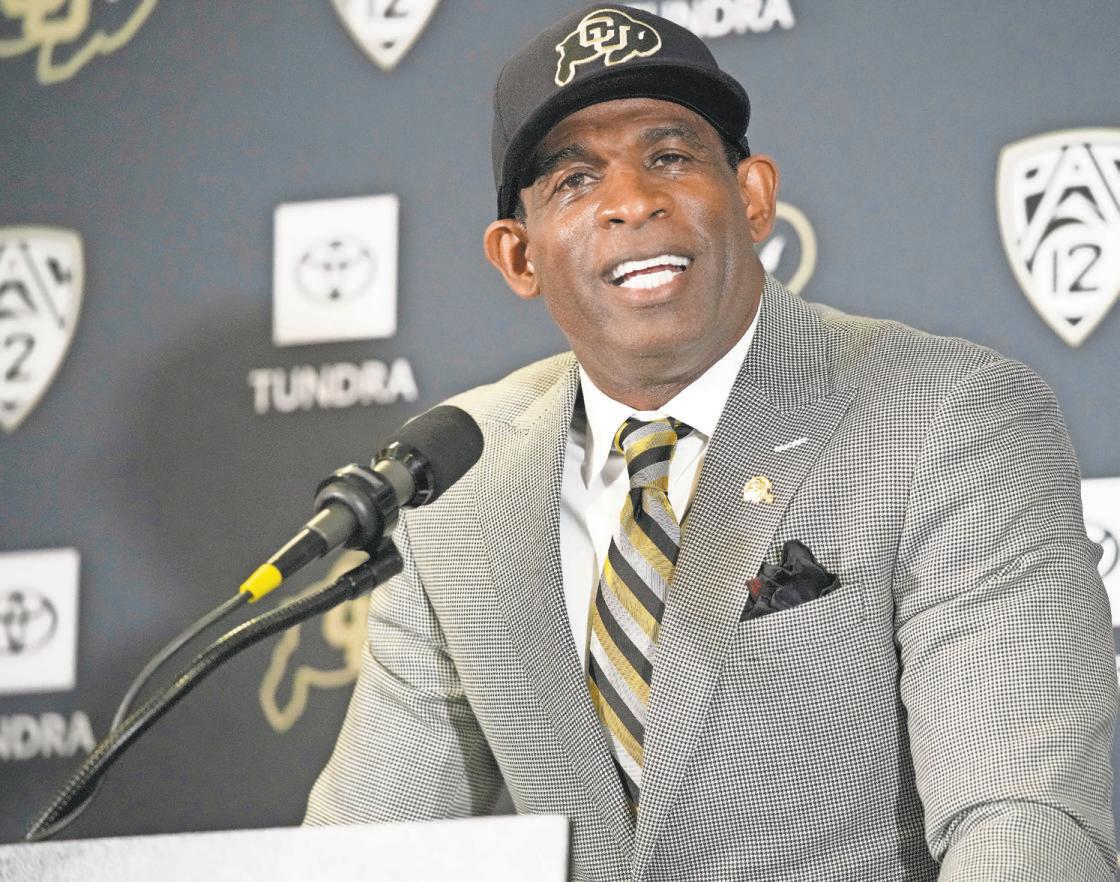


 WATSON WELCOMED BY MANY
WATSON WELCOMED BY MANY
Former Texans quarterback Deshaun Watson made his heavily anticipated return to Houston and NRG Stadium. While the quarterback certainly heard his share of jeers and boos, he also received quite a warm welcome from most in attendance for the Texans-Browns matchup. Watson, of course, was coming off an 11-game suspension for being involved in a lawsuit brought by more than two dozen massage therapists.

Three members of the Texas Southern football team earned 2022 All-SWAC Honors. Senior offensive lineman Drake Centers and sophomore cornerback Isaiah Hamilton earned first-team honors while return specialist Chaunzavia Lewis was named to the second team.

Coach Prime brought his million-watt persona to Black College Football and with it came the national cameras and media attention that has never been seen in the history of HBCU football.
“Good Morning America” came through. So did “60 Minutes.” And who can forget about ESPN’s “College GameDay” traveling show making a rare HBCU stop this football season? Snoop and other celebrities also made their way to Jackson State
“ en, you look towards down the line to scheduling some of those games,” Sanders said. “Right now, those games are a financial beatdown. at’s what I call them. at’s what some HBCUs choose to do. I’m going to go to these various schools, get my butt kicked, but I’m walking out of there with $750,000 or a million dollars. at’s not worth it to me. To me, that’s
As a result of not having to play those games, Jackson State (12-0) is enjoying its first undefeated season and Sanders is now reveling in the night-and-day resources and perks that come with coaching a Power 5 program.
For the le -behind Tigers and SWAC, the future seems uncertain. Jackson State and athletic director Ashley Robinson must now replace Sanders and that will be hard to do given his reach and pull.
SWAC commissioner Charles McClelland talked a week ago about the unprecedented ESPN television exposure the conference has enjoyed this season. at expectation was for it to continue and possibly grow in the years to come.
at was likely more a preemptive strike than it was the commissioner having his head in the sand.“We are excelling as a league,” McClelland said. “We are not where we want to be. We are going to continue to grow and get stronger, but the type of recognition we are getting on ESPN, it gives us the opportunity to grow.”
How that plays with “Prime Time” now gone remains to be seen.
But while people are taking the opportunity to take shots at Sanders for leaving a $300,000 per year job for one that pays $5 million, there is a strong argument that he has improved things for years to come at Jackson State, the SWAC and HBCU football in general.
Jackson State has a new football stadium coming, and the facilities have been improved greatly. e SWAC and HBCU football now know their worth and what is possible as long as they continue to invest in their product.
Change makes people get uncomfortable.

If you haven’t heard,the Furr basketball team has been clicking on cylinders … having defeated Strake Jesuit and Jack Yates in double-digit.
Furr senior point guard Demetric Kindle and combo guard Jacobee Giles have lead the team in scoring, and their suffocating full-court pressure defense has improved with 4-star football receiver Cam’ron Heard added to the mix.
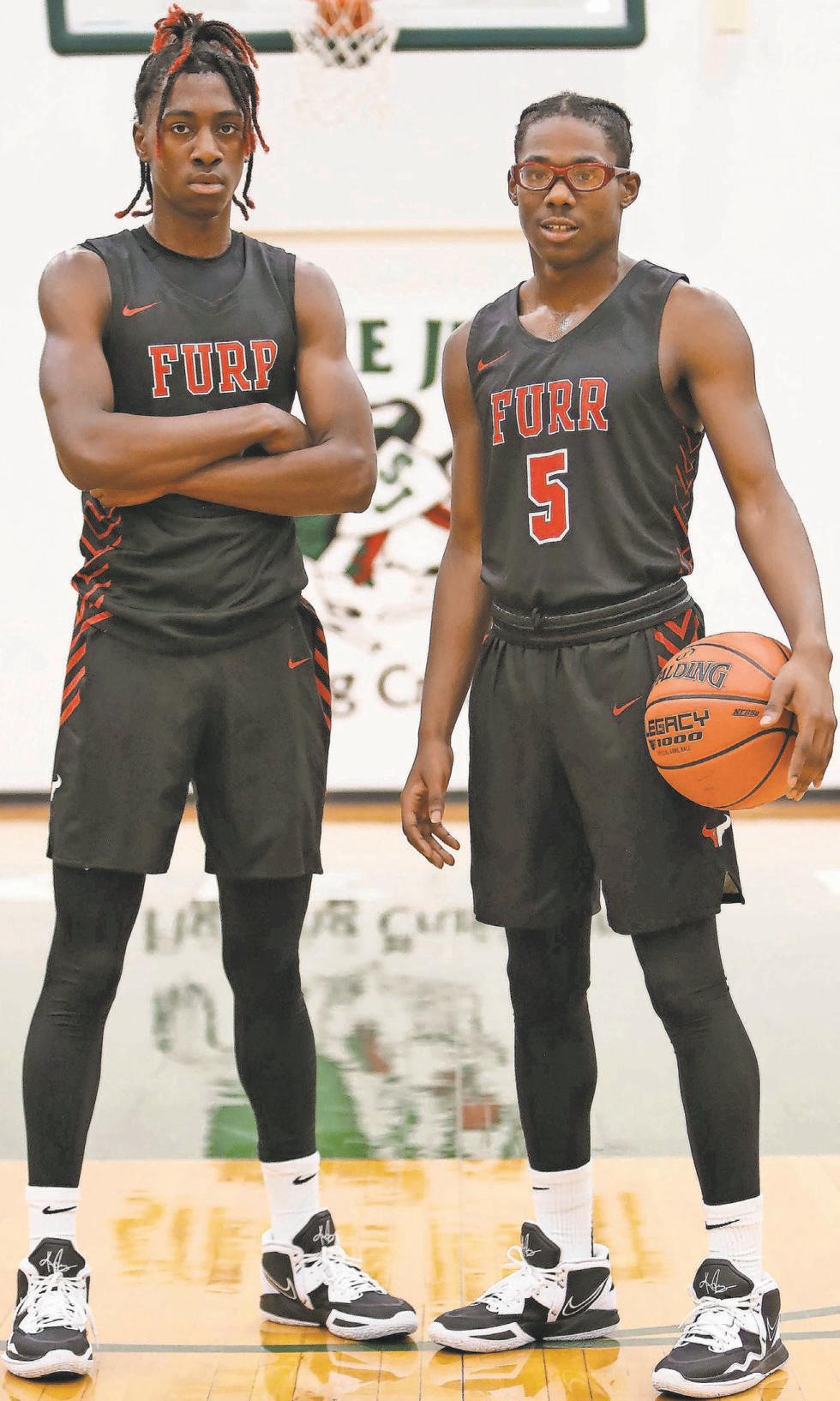




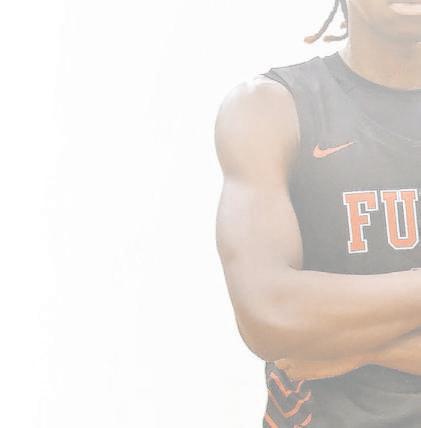



Giles is a pure energy guy who that keeps the engine burning pedal-to-the-medal on defense and offense. e kid is non-stop and keeps his teammates level headed whether they are up or down in a game.
Kindle is the offensive star of the team who can play every position. His “Iso” game was on full display with 16 points in a win against Strake Jesuit. He is an athletic
slasher who finishes strong, and can get to the basket with either his quick first step or deadly crossover move.

When Furr head coach Rodney Lewis was asked what made each of these seniors special, Coach Lewis stated, “Giles is a kid that has been working extremely hard. He has a 3.5 GPA….A er he gets done with high school hopefully one of these colleges will pick him up academically as well as athletically.”
“Demetric Kindle is a kid that I have had on varsity since the ninth grade. So, he is well-seasoned and fully understands what it takes to win. What makes him unique from everybody else is that he is able to play the four, the three, the two and the one.”
e Defender spoke with Giles and Kindle to discuss their games, leadership, keys to success, and more.
GILES: “I love defense and that keeps me going.”
KINDLE: “I like to get to my spots and get to the rim.”
GILES: “I really lead the team by trying to bring energy on defense and just trying to talk to get my boys hype.”
KINDLE: “I just let him (Giles) lead and I just play.”
KINDLE: “We’ve got to play full-court man. That is all that we do in practice;
run full-court man. So, we are definitely in shape and can go all day.”


KINDLE: “It was just locking down Jace Posey on defense. Just don’t let him do nothing.”
GILES: “Really, it is the energy, the guys, and the coaches who always make sure we’re straight.”
GILES: “Staying humble, keep grinding, and keep going all out.”
ABOUT DEMETRIC KINDLE Twitter: @brabra4x1 Players He Studies: Darius Garland Favorite Artists: Detroit rappers like EST Gee Shoutouts: “All my coaches; Coach Lewis and Coach Mint”
By Jodie B. JilesAt 6’4” and an athletic 240 lbs., C.E. King senior defensive end Dylan Spencer has the body of a first-round NFL Dra pick before he has even stepped foot on the University of Texas at Austin campus.
In the Regional semifinal victory against Hightower, Spencer showed off his speed chasing down running backs that have sub-4.4 speeds, agility to leap over everyone to
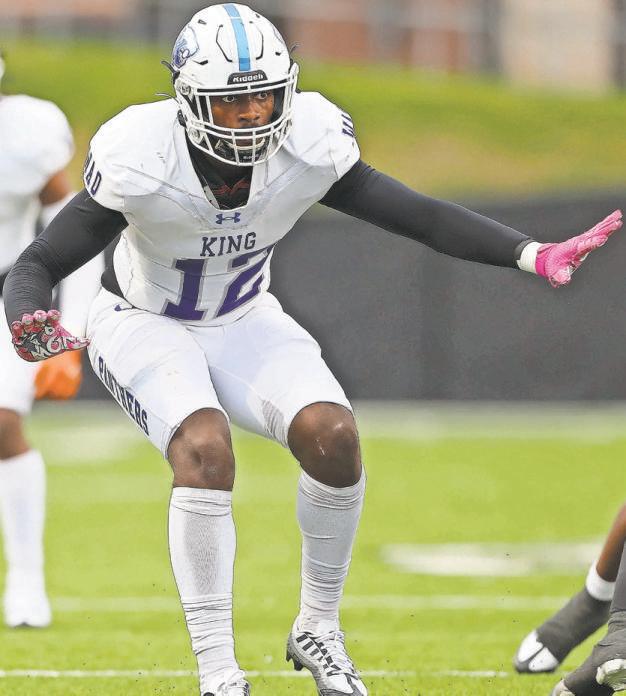
Twitter: @jacobeegiles
Players He Studies: Colin Sexton
Favorite Artists: Any Rap from Louisiana Shoutouts: “All my coaches and my mom.”
bat down passes, and power to simply knock opponents off their feet at the snap. What more can you ask for?
For full interview with Dylan Spencer visit www.defendernetwork.com
infuencers stay connected to their followers using ultra-fast WiFi. They stream, game, and create content for their online fanbases. With Xfnity supersonic WiFi, there's space to power every device in your home. Now, everyone can stay one step ahead of the game anytime, anywhere.









